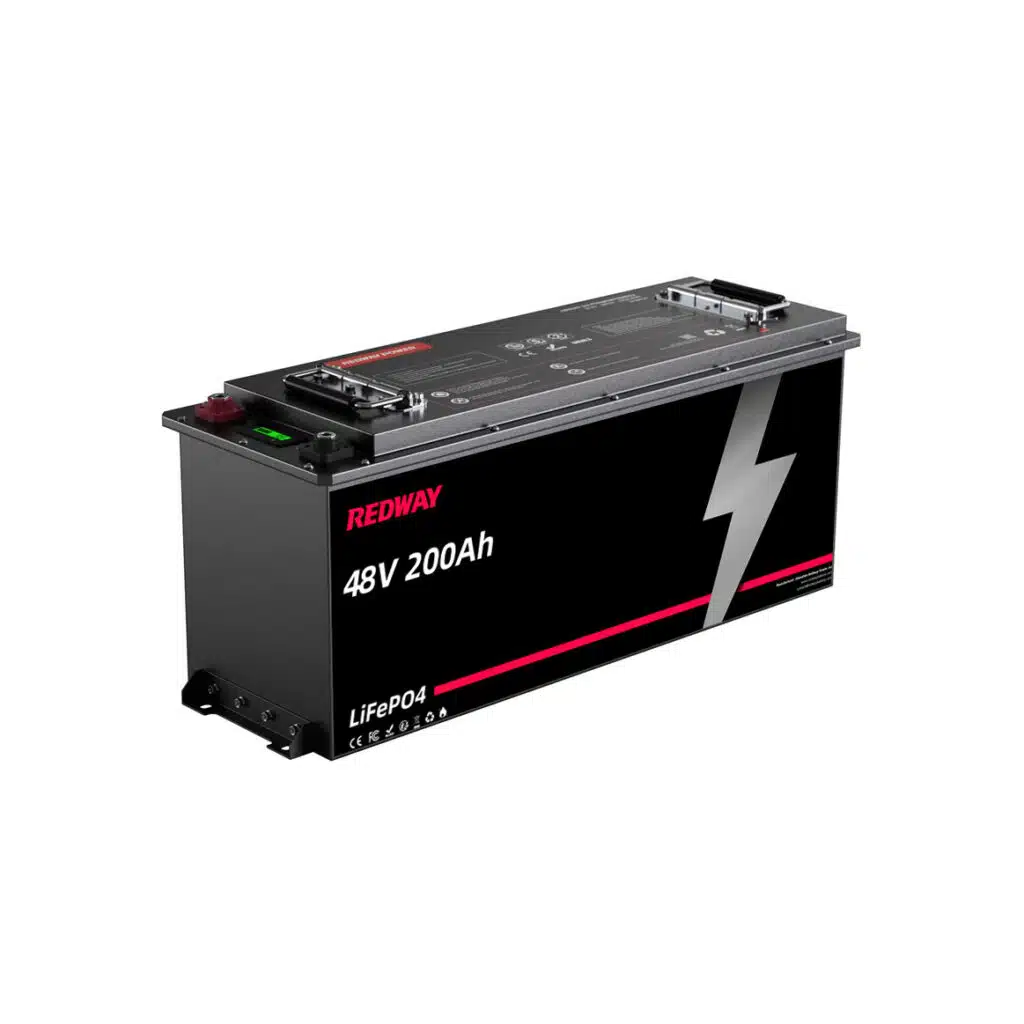Are you looking to power your system with a reliable and efficient battery? Look no further than the 48V lithium battery. This powerful technology has taken the energy world by storm, providing unmatched performance and durability for a variety of applications. Whether you’re building an off-grid solar setup or upgrading your electric vehicle’s power source, a 48V lithium battery could be just what you need to take your system to new heights. In this article, we’ll explore everything you need to know about these batteries, including how they work, their benefits, and how to choose the right one for your needs. So buckle up and let’s dive in!

#post_seo_title
What is a 48V Lithium Battery?
A 48V lithium battery is a type of rechargeable battery that uses lithium-ion chemistry to store and deliver electrical energy. As the name suggests, these batteries have a nominal voltage of 48 volts, making them ideal for high-powered applications such as electric vehicles and solar power systems.
Unlike traditional lead-acid batteries, which are heavy and bulky, 48V lithium batteries are lightweight and compact. This makes them easier to transport and install in tight spaces. In addition, they offer higher energy density than lead-acid batteries, meaning they can store more energy in the same amount of space.
One of the key advantages of 48V lithium batteries is their long cycle life. Unlike other types of batteries that degrade over time with each charge-discharge cycle, lithium-ion batteries can last for thousands of cycles without losing significant capacity.
Another benefit is their fast charging capabilities. With the right charger setup, you can fully charge a 48V lithium battery in just a few hours – much faster than lead-acid alternatives.
If you’re looking for an efficient and reliable power source for your system or device, a 48V lithium battery could be an excellent option to consider.
How Does a 48V Lithium Battery Work?
A 48V lithium battery is a rechargeable energy storage system that operates on the principle of electrochemical reactions. At its core, it consists of multiple cells connected in series to produce a higher voltage output.
Lithium batteries use lithium ions to store and release electrical energy. The cathode and anode are the two terminals where these ions move through during charging and discharging cycles. When charging, lithium ions travel from the cathode to the anode, while they move in reverse when discharging.
The chemistry behind how a 48V lithium battery works involves complex interactions between different materials used for electrodes, electrolytes, separators, and casing components. For example, many modern lithium batteries use cobalt oxide or nickel-manganese-cobalt as their cathodes due to their high energy density.
To maintain optimal performance and longevity of your 48V lithium battery pack requires proper care such as balancing individual cell voltages within the pack range. Doing so ensures that all cells are working together at their maximum potential without any overloading or underloading issues caused by imbalanced voltages.
Understanding how a 48V Lithium Battery works can help you make informed decisions about choosing one for your power needs based on factors like efficiency, safety features and capacity requirements tailored towards specific applications such as electric vehicles or off-grid solar systems.
The Benefits of a 48V Lithium Battery
A 48V lithium battery is an advanced power storage solution that offers several benefits over traditional lead-acid batteries. Firstly, these batteries are much lighter and more compact than their counterparts, making them ideal for use in small spaces or as a portable power source.
Another significant advantage of 48V lithium batteries is their longer lifespan. They can last up to ten times longer than lead-acid batteries, reducing the need for frequent replacements and saving you money in the long run.
Moreover, these batteries offer excellent energy efficiency, which means they can store more energy while using less power to do so. This feature translates into lower electricity bills and reduced carbon footprint.
Furthermore, 48V lithium batteries have a higher discharge rate compared to other types of batteries. This means they can deliver high levels of current when needed without suffering from voltage drops commonly associated with other battery technologies.
Additionally, lithium-ion technology has no memory effect; hence they don’t lose capacity if not discharged fully before recharging – unlike lead-acid ones.
The benefits of a 48V lithium battery make it an excellent investment for anyone looking for reliable and efficient backup power solutions or renewable energy systems.
How to Choose the Right 48V Lithium Battery for You
Choosing the right 48V lithium battery for your system can be a daunting task, but it doesn’t have to be. Here are some factors to consider when selecting the perfect battery:
Firstly, you need to determine your power needs. This includes calculating the amount of energy required by your system and how long you want it to run on battery power.
Next, consider the size and weight of the battery. If space is limited in your application or if portability is important, then a lighter and more compact option may be necessary.
Another factor to keep in mind is safety. Look for batteries that come with built-in protection circuits such as overcharge, over-discharge, short circuit protection, and temperature control.
Consider also the lifespan of the battery – choose one that has a longer cycle life so that you don’t have to replace it frequently.
Take into account compatibility with your existing equipment. Make sure that the voltage ratings match up correctly before making any purchases.
By considering these factors when choosing your 48V lithium battery, you can ensure optimal performance for your system while ensuring longevity and safety.
FAQs About 48V Lithium Batteries
FAQs About 48V Lithium Batteries:
Q: How long does a 48V lithium battery last?
A: The lifespan of a 48V lithium battery can vary depending on usage and maintenance. On average, they can last up to ten years or approximately 3,000 charging cycles.
Q: Can I install a 48V lithium battery into my existing system?
A: It is possible to retrofit your existing system with a 48V lithium battery. However, it’s important to consult with an expert before making any changes to ensure compatibility and safety.
Q: Are there any safety concerns with using a 48V lithium battery?
A: Like all batteries, there are some safety risks associated with the use of a 48V lithium battery. They should be handled carefully and stored in appropriate conditions to prevent thermal runaway or other hazards.
Q: What are the environmental benefits of using a 48V lithium battery?
A: Compared to traditional lead-acid batteries, which contain toxic chemicals that can harm the environment during production and disposal, 48v Lithium batteries have minimal impact on the environment as they do not contain heavy metals like lead or mercury.
Q: How much energy storage capacity do I need for my system?
A:The amount of energy storage capacity you require depends on various factors such as the size of your system appliances used etc . It’s best practice to calculate your daily electricity consumption (in kWh) then choose an appropriate sized solar PV panel array along with a suitable size battery bank for maximum efficiency.
These FAQs provide valuable insight into some of the most commonly asked questions about utilizing a high-performance power solution through advanced technology; AKA- The Lithium Battery pack!
Conclusion
After exploring the benefits of a 48V lithium battery, it’s clear that this technology has a lot to offer for those looking to power their systems. From longer lifespans and faster charging times to increased efficiency and flexibility, there are many reasons why businesses and individuals alike are making the switch.
When choosing the right 48V lithium battery for your needs, make sure to consider factors such as capacity, voltage range, cycle life, charge time, and overall durability. By doing so, you can ensure that you’re getting a high-quality product that will deliver reliable performance over time.
Ultimately, whether you’re powering an electric vehicle or running critical equipment at your business, investing in a 48V lithium battery is a smart choice. With its numerous advantages over traditional lead-acid batteries and other alternatives on the market today – not to mention its potential for powering future innovations yet to come – this technology is poised to play an increasingly important role in our lives in the years ahead.


